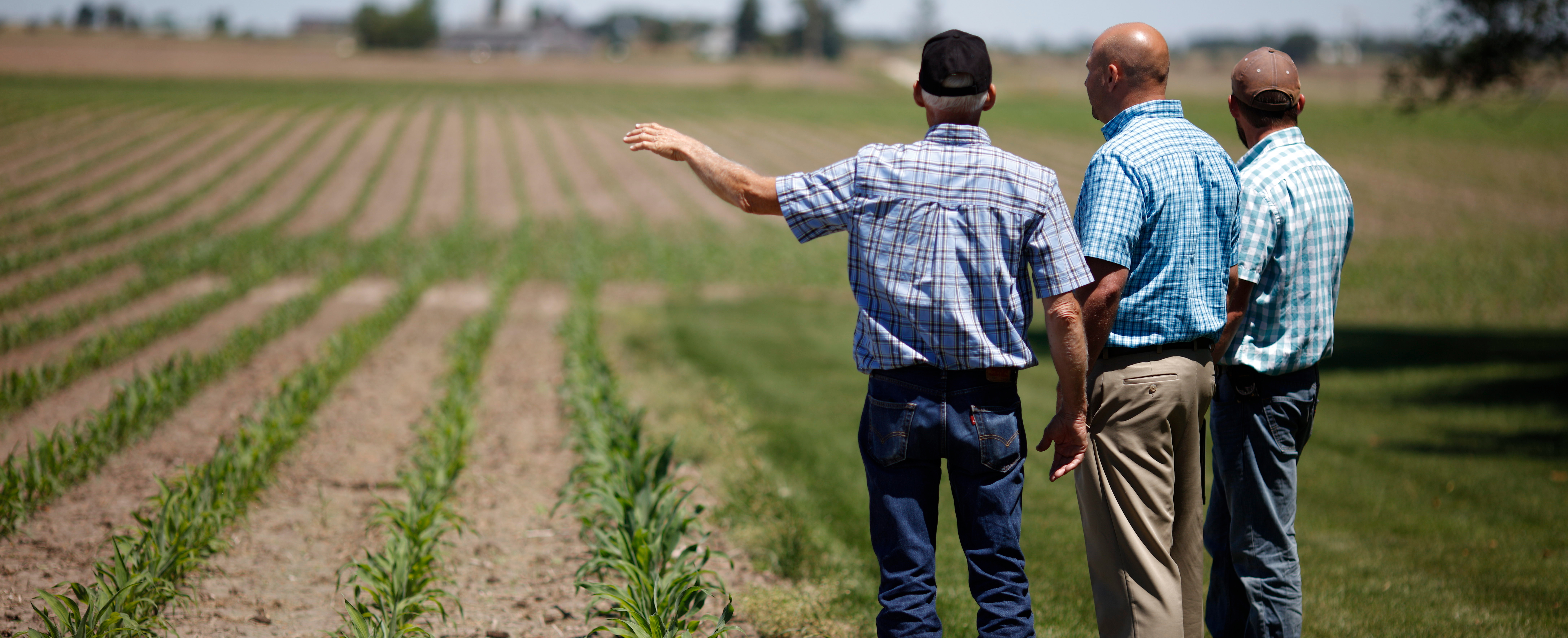Farm Bill of Key Interest to Compeer Financial and Its Clients

With the 2018 Farm Bill set to expire on Sept. 30, 2023, the work of the U.S. Congress writing and passing a new Farm Bill is of key interest to Compeer Financial, our clients and U.S. agriculture entities. Crafting a Farm Bill that can attract bipartisan support in Congress is becoming increasingly challenging given today’s political climate in Washington, D.C. As with the development of every Farm Bill, the health of the U.S. agriculture sector, dollars available to write a new bill and politics all determine whether Congress passes a short-term extension or must extend the current Farm Bill beyond the 2024 election.
Throughout 2023, the House and Senate agriculture committees have held numerous hearings and listening sessions to gather input from constituents and farm group leaders on ways the next Farm Bill can best support the diverse needs of U.S. agriculture. Some themes heard during listening sessions within Compeer’s territory have been the importance of maintaining and enhancing the federal crop insurance program, ways to support the next generation of farmers, enhancing livestock and dairy risk management tools, ensuring necessary resources for animal disease and surveillance and supporting programs that promote U.S ag exports to overseas customers.
A key challenge for the agriculture committees in crafting the next Farm Bill comes down to funding and whether any additional dollars can be found to help address the myriad of needs and challenges facing U.S. agriculture. Overall, Farm Bill spending has continued to increase due to the rising costs of the Supplement Nutrition Assistance Program (SNAP) and other nutrition programs authorized by the Farm Bill. At the time the 2018 Farm Bill was written, the Congressional Budget Office (CBO) estimated the cost of the legislation to be $876 billion over 10 years. However, CBO’s current 2023 Farm Bill baseline projections show spending estimates in excess of $1.51 trillion over 10 years.
Conservation funding within the Farm Bill is also under discussion. The Inflation Reduction Act (IRA) that passed Congress in 2022 appropriated more than $18 billion in new, one-time funding to assist farmers in adopting climate mitigation practices, delivered through Farm Bill authorized programs such as the Environmental Quality Incentives Program (EQIP), the Conservation Security Program (CSP), the Agricultural Conservation Easement Program and the Regional Conservation Partnership Program (RCPP). Consideration is being given to rolling the IRA conservation funding into the Farm Bill baseline to permanently bolster funding for conservation programs and help the Natural Resources Conservation Service address its backlog of application requests. If this occurs, a key point of debate within the Agriculture Committees will be whether to broaden eligibility for the IRA conservation dollars to address other conservation needs farmers have beyond adoption of climate mitigation practices.
For our part, Compeer Financial and the Farm Credit System have been active in educating members of Congress and their staff on the importance of the Farm Bill to our clients. We are encouraging Congress to craft and pass a Farm Bill that recognizes the unique challenges and opportunities facing U.S. agriculture and rural communities. Some of the key Farm Bill priorities Compeer is focused on include:
- Protecting and enhancing risk management tools for farmers.
- Increasing U.S. Department of Agriculture (USDA) Farm Service Agency (FSA) guarantee and direct loans for farmers and modernizing FSA farm operation definitions to recognize changing farm ownership structures that aid in intergenerational farm transfers.
- Permanent authority for Compeer and other Farm Credit institutions to partner with local lenders to help finance essential rural community facilities such as hospitals, senior living, child care, education and emergency response buildings.
As the 2018 Farm Bill expires and the end of the year approaches, pressure will grow on Congress to pass and sign a Farm Bill into law, leaving time for farmers to plan for the 2024 growing season. Currently, both House and Senate agriculture committee chairs (Congressman GT Thompson, R-Pa, and Senator Debbie Stabenow, D-Mich.) continue to publicly state their commitment to getting a Farm Bill passed in the next few months, even if it takes a short-term extension to allow Congress to complete its work. Ultimately, getting a Farm Bill passed by Congress will take bipartisan support from a coalition of those with rural and urban interests.
Compeer will continue to work with members of Congress from Illinois, Minnesota and Wisconsin, and in collaboration with other agriculture interests to advocate for a new Farm Bill that helps ensure our clients have the ability to manage weather and economic challenges, as well as one the helps ensure the vibrancy of our rural communities.